The emotional aftermath of a house fire can be incredibly overwhelming. Trauma from such an event can cause a range of reactions, both physical and psychological.
Common emotional reactions to a house fire include fear, sadness, disbelief, guilt, shame, anger, anxiety and depression. It is important to recognize these feelings and know that they are normal responses to an abnormal event.
It is common for survivors to experience sleep disturbances such as nightmares or insomnia due to traumatic memories. Additionally, feelings of intense stress may manifest as physical symptoms such as headaches and fatigue.
Feeling disconnected from family members or friends is also normal after experiencing trauma. By understanding the wide range of emotions that come with recovering from a house fire it can help individuals better manage their own PTSD symptoms in the healing process.
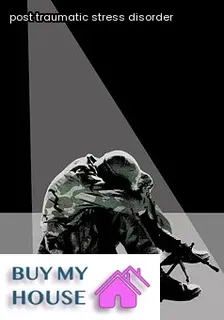
The impacts of a house fire can be devastating and it is important to recognize the signs of trauma and PTSD in order to heal. In order to cope with the psychological effects of a house fire, it is essential to establish healthy coping strategies that work best for you.
One strategy is to identify activities that promote relaxation such as yoga or mindfulness meditation, which can help ease symptoms of anxiety and depression. Additionally, talking to friends and family members about your experience can be an effective way to process emotions related to the trauma.
Other helpful coping strategies include exercising regularly, engaging in creative activities like painting or writing, or speaking with a mental health professional for additional guidance. Taking steps towards self-care such as getting enough sleep, eating nutritious meals, and setting aside time for yourself are also important for managing PTSD symptoms.
With proper support and understanding from loved ones, healing from trauma after a house fire is possible.
When children experience a traumatic event such as a house fire, they can suffer from post-traumatic stress disorder (PTSD). It is important to help children cope with their trauma in order to avoid long-term psychological impacts.
Parents and caregivers can provide emotional support and help the child process their feelings of loss or fear. Developing coping skills like mindfulness, deep breathing, and journaling can be useful for managing anxiety.
It is also beneficial for children to talk about the incident with someone they trust. Creating an environment of safety and security will allow them to feel secure enough to discuss their worries and ask questions.
Encouraging healthy activities such as going outside, playing games, or engaging in creative pursuits can provide distraction from negative thoughts and assist in developing positive coping strategies. Educating children on how trauma affects the body and mind can foster understanding of why they are feeling a certain way and lead to better management of PTSD symptoms.
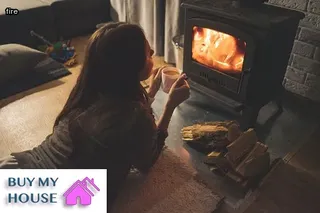
Dealing with PTSD following a house fire can be a difficult process for those affected. It is important to recognize the symptoms of PTSD, such as flashbacks, nightmares, intrusive thoughts, and heightened anxiety.
Once these symptoms are recognized, there are several steps that can be taken to help manage PTSD. It is beneficial to seek professional help from a therapist or mental health practitioner who is knowledgeable in trauma-focused therapies.
Talking about your experience with someone you trust can also be beneficial in the healing process. Additionally, mindfulness practices such as yoga or meditation can help reduce symptoms of PTSD.
Taking time to focus on self-care is also important in managing trauma; activities like taking a warm bath or getting outside for fresh air can reduce stress levels and make it easier to cope with the trauma associated with a house fire.
After experiencing a house fire, it is natural to have a range of emotional and psychological responses. It is important to remember that trauma affects everyone differently, and the impact can be long lasting.
It is common for survivors of traumatic events to experience symptoms of Post Traumatic Stress Disorder (PTSD). These can include intrusive memories, nightmares, avoidance of reminders related to the event, hypervigilance and difficulty regulating emotions.
Those who have experienced a house fire may also feel intense feelings of guilt or shame. It is essential to recognize these symptoms and be willing to seek help in order to manage them.
A mental health professional can provide support in understanding the symptoms and developing healthy coping strategies such as mindfulness-based stress reduction, cognitive behavioral therapy or exposure therapy. The process of healing from trauma after a house fire requires patience, courage and dedication but with the right support system it is possible for survivors to learn how to cope with their PTSD symptoms and begin to heal.

Fear and anxiety can be crippling after a house fire, and it is important to recognize these symptoms as they can be signs of post-traumatic stress disorder (PTSD). Coping with the aftermath of a fire can be an incredibly difficult journey, but there are ways to work through it.
Taking small steps is key - focus on one thing at a time. It's ok if progress feels slow; healing takes time.
Acknowledge your feelings and don't be afraid to talk about them. Find someone you trust and make sure to practice self-care by taking care of your mind, body, and soul.
Consider getting professional help if necessary - talking to a therapist or attending support groups may benefit you in the long run. Exercise is also beneficial for managing fear and anxiety – try yoga or meditation for calming activities that can help reduce stress levels.
Take comfort in knowing that you aren't alone, and recognize that every step forward counts towards feeling better again.
It is common for people who have experienced a traumatic event, such as a house fire, to suffer from PTSD. Assessing the impact of this traumatic stress on mental health is essential in order to properly treat and manage these symptoms.
It is important to recognize signs of distress, including feeling overwhelmed and having difficulty concentrating, sleeping or making decisions. It is also important to understand how trauma can lead to changes in behavior and outlook, such as increased anxiety or depression.
Traumatic stress can also manifest itself through physical symptoms including headaches, fatigue, muscle tension and stomach problems. By understanding the effects of traumatic stress on mental health, individuals can be better prepared to identify their own symptoms and seek out appropriate support for healing from trauma after a house fire.
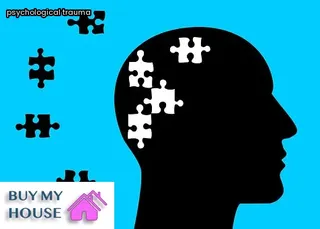
After a house fire, children may experience trauma that can manifest itself in the form of Post Traumatic Stress Disorder (PTSD). It is important for parents and guardians to recognize signs of PTSD in children so they can get the help they need.
Symptoms of PTSD can vary in severity and include nightmares, flashbacks, heightened anxiety and fear responses, avoidance of reminders or triggers related to the traumatic event, social withdrawal, difficulty concentrating or sleeping, irritability or outbursts of anger, and physical symptoms such as headaches or stomachaches. If left untreated, PTSD can have long-term consequences including depression, substance abuse issues, and other mental health problems.
Parents should seek professional help if they see any changes in their child’s behavior or if they are concerned that their child may be exhibiting signs of PTSD after a house fire. Additionally, being aware of available resources such as counseling services and support groups can help ensure a successful recovery.
If your child experiences a house fire, the most important thing is to stay calm and provide reassurance. It is normal for children to be scared and overwhelmed in such a situation, so it is important to show them love and support.
If possible, try to provide an explanation of what has happened, as this may help them process their feelings. It is also essential to create a sense of safety afterwards; make sure that they are surrounded by familiar people and objects.
Talk openly with your child about the event, and listen carefully to their concerns. Make sure they know that it is ok to have strong emotions in response to such traumatic events, and encourage them to express themselves in whatever way feels right for them.
Encourage activities like art or journaling as coping mechanisms; these can be incredibly helpful when processing difficult emotions. Do not hesitate to reach out for professional help if necessary; there are many resources available for helping children manage trauma after a house fire.
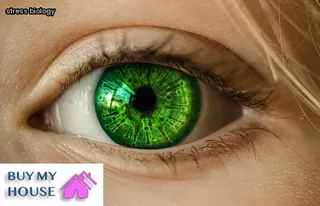
Finding professional support after a house fire is an important step in the healing process. Trauma can have lasting effects, and it’s essential to find a mental health professional who understands the physical, emotional and psychological impact of experiencing a major trauma like a house fire.
A qualified therapist can help you identify and manage the PTSD symptoms that may arise after such an event. Additionally, they can provide resources to help cope with the long-term effects of trauma.
Support groups are also available for individuals who have gone through similar experiences. These groups offer a safe space to discuss your struggles and connect with others who have been through similar traumatic events.
Ultimately, having access to counseling, therapy, or support groups can be instrumental in helping you heal from the aftermath of the fire.
Establishing ground rules for managing stressful situations after a house fire is essential to healing from trauma. Taking proactive steps to recognize and manage PTSD symptoms can be the difference between long-term healing or ongoing suffering.
Starting with a plan to address the emotional aftermath of a house fire can help provide an anchor during times of distress. This plan should include identifying triggers that may evoke uncomfortable memories and developing coping strategies for when these triggers arise.
Planning ahead will arm you with the resources necessary to reduce stress in difficult moments, such as breathing exercises, meditation, or talking with a trusted friend. Additionally, it’s important to remember that recovery takes time and practice, so don’t be too hard on yourself if progress feels slow.
Finally, don’t hesitate to reach out for professional help if needed – there is no shame in seeking support from a mental health expert who can provide personalized guidance and strategies for managing trauma-related stressors.

Self-care is an essential component in the healing process following a traumatic event, such as a house fire. Taking care of oneself can help to reduce the effects of PTSD, or Post Traumatic Stress Disorder, which can be triggered by a traumatic experience.
Self-care strategies are important for managing the symptoms of PTSD, including difficulty sleeping and concentrating, feeling on edge and overwhelmed, and feeling emotionally overwhelmed. It’s important to identify activities that promote relaxation and well-being such as yoga or mindfulness meditation.
Taking time to nurture yourself also includes creating healthy boundaries with family and friends who may be more than you can handle at this time in your life. Additionally, engaging in creative activities like painting or writing can provide positive outlets for stress.
Lastly, connecting to nature through walking outside or gardening can help bring peace and calmness during this difficult time. Allowing yourself these moments of peace is imperative for healing from trauma after a house fire—recognizing and managing PTSD symptoms.
Developing resiliency in young people who have experienced a house fire is an important step for helping them heal from trauma. It is essential to recognize PTSD symptoms, such as flashbacks, difficulty sleeping, and feeling scared or alone.
Encouraging open dialogue and providing emotional support can help young people manage their traumatic experiences. Teaching coping skills such as breathing exercises and mindfulness techniques can also be beneficial in helping children process their feelings.
Additionally, building strong relationships with family members and other trusted adults can help children feel safe and secure during difficult times. Lastly, participating in activities that bring joy such as playing games or spending time outdoors can provide comfort and relief from the stress of managing trauma-related symptoms.
By providing these resources to young people affected by a house fire, they will learn to develop the resilience needed to cope with difficult life events.
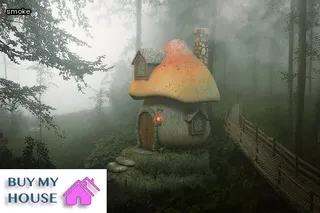
Talking to children about difficult topics such as trauma, like recovering from the experience of a house fire, can be an intimidating prospect. It's important to recognize that this conversation is one that needs to take place in order to help your child process their emotions and experiences.
Acknowledging the trauma they have endured, recognizing any PTSD symptoms they may be experiencing, and managing those symptoms are all crucial for helping your child heal. Start by letting them know it's OK to talk about their feelings and giving them space to express themselves.
Focus on understanding their perspective rather than trying to provide solutions or advice. Ask open-ended questions that allow your child to explore their thoughts and emotions without fear of judgement.
Additionally, make sure you're taking care of yourself so you can better support your child through the healing process. Allowing time for self-care will help ensure the conversation is productive and beneficial for both parties involved.
Healing from trauma after a house fire is an incredibly difficult process, and it can be especially daunting for children. The experience of losing their home and the fear of the unknown can be incredibly traumatizing for young minds, often resulting in long-term mental health issues such as PTSD.
For parents and caregivers, it can be hard to know how to best help their children through this difficult time. Guiding children through the healing process after a fire requires understanding, patience, and a willingness to listen.
It’s important to recognize when your child is struggling with emotional or behavioral changes that could indicate PTSD symptoms. This might include nightmares, flashbacks, avoidance of certain activities or places that remind them of the event, hypervigilance or difficulty concentrating on tasks.
It’s also important to remember that different children will cope in different ways – some may become more clingy while others may withdraw completely. When managing these symptoms, it’s essential to provide stability by following consistent routines and rules while also allowing your child space to express their feelings through creative outlets like art or writing.
Taking part in counseling sessions together can also help create an open dialogue between parent and child while providing support throughout the healing process.

Creating routines and structure after experiencing trauma is a key step in the healing process. Establishing regular habits and a sense of control can provide comfort and stability after experiencing a traumatic event such as a house fire.
It’s important to recognize how the trauma has affected your daily life, from interfering with sleeping patterns to creating difficulty focusing on tasks that used to come easily. Developing routines like waking up at the same time each day, spending time outdoors, and meditating can help manage PTSD symptoms while providing structure and grounding.
Routines also provide an opportunity to practice self-care activities, like eating balanced meals or developing an exercise plan. Setting goals each day can also aid in getting back on track by providing motivation and helping you feel accomplished despite any setbacks you may experience.
Finally, engaging in activities that bring joy can be beneficial in the healing process by providing moments of happiness and distraction from difficult emotions.
It can be difficult to process the emotions of grief, loss, and sadness that come with surviving a house fire. It is important to recognize these feelings and give yourself time to grieve the losses you have experienced.
Loss of material possessions, memories, and even potential safety can be overwhelming and it is important to acknowledge your emotions as you heal from trauma. Mourning the loss of your home and the things inside it can help you move forward in a healthy way.
If you are struggling with intense sadness that does not seem to lessen over time, seek professional help as this may be a sign of post-traumatic stress disorder (PTSD). A qualified therapist or psychologist can help you work through your experience in a safe environment and develop coping skills for managing PTSD symptoms.

Supporting family members who may be struggling post-fire is a difficult but important task. After surviving a house fire, individuals may experience trauma and develop PTSD symptoms, such as flashbacks, depression, or anxiety.
It's essential for friends and family to recognize the signs of PTSD and offer supportive care so that their loved one can begin healing from the traumatic event. Creating a safe environment where they can express emotions without judgement or criticism is key in helping them cope with the trauma.
This can include providing reassurance that it's okay to feel scared or overwhelmed, as well as offering physical comfort like hugs or gentle touches. If necessary, professional assistance should be sought out to provide additional support in managing the PTSD symptoms.
Empathy and understanding are also vital during this time so that family members know that they are not alone in their journey towards recovery.
Dealing with PTSD after a house fire can be overwhelming and scary. It is important to recognize the signs of PTSD and how to manage them.
It is normal to feel anxious, depressed, or have difficulty sleeping or concentrating after experiencing such a traumatic event. The key is to get help from mental health professionals who specialize in trauma recovery.
It is also important to reach out for support from family and friends as well as finding ways to cope such as talking about the experience, engaging in physical activity, and using relaxation techniques like mindfulness meditation or yoga. Additionally, creating a daily routine can help make life more predictable and manageable in times of distress.
Finally, it is essential to give yourself grace by recognizing that healing takes time and will not happen overnight.

Yes, house fires can cause Post-Traumatic Stress Disorder (PTSD). Traumatic events such as a house fire can lead to the development of PTSD symptoms, including nightmares, flashbacks, depression and anxiety.
Survivors of a house fire may need to seek professional help in order to heal from the trauma and manage their PTSD symptoms. Understanding how trauma after a house fire can manifest in PTSD is key for recognizing and managing the condition.
Treatment for PTSD includes both traditional talk therapy as well as alternative treatments such as mindfulness meditation, yoga, journaling and art therapy. With proper treatment, individuals who have experienced trauma from a house fire can learn how to cope with their PTSD symptoms and move toward healing.
Yes, a house fire can be considered traumatic. The feelings of fear, shock, and helplessness experienced during or after a house fire can cause significant emotional distress and lead to the development of Post-Traumatic Stress Disorder (PTSD).
PTSD is an anxiety disorder that develops when an individual experiences or witnesses a traumatic event like a house fire. Symptoms of PTSD can include nightmares, flashbacks to the event, heightened anxiety, depression, and difficulty sleeping.
It is important to recognize these symptoms and address them in order to heal from trauma caused by a house fire. Seeking professional help from a therapist or mental health professional is often beneficial in managing PTSD symptoms and healing from trauma.
Recovering from a house fire can be a long and difficult process. The severity of the trauma experienced in a house fire can vary greatly, as can the time it takes to heal from it.
Typically, though, recovery can take anywhere from weeks to years. For those who experience PTSD symptoms after a house fire, the healing process may take even longer.
It is important to recognize signs of PTSD and seek treatment early in order to manage symptoms and speed up the recovery process. Long-term psychotherapy and medications may be recommended by healthcare professionals to help individuals cope with their traumatic experiences effectively.
In addition, engaging in self-care activities such as yoga and exercise can be beneficial for healing after a house fire. By taking these steps, people affected by a house fire can begin their journey toward recovery as soon as possible.
A: Treatment methods for PTSD after surviving a house fire may include cognitive-behavioral therapy, exposure therapy, and relaxation techniques. Additionally, medications such as antidepressants may also be used to help manage symptoms of PTSD. It is important to seek professional help in order to properly manage the emotional trauma associated with the experience.
A: It is important for individuals dealing with PTSD after a house fire to seek professional help, such as counseling or cognitive-behavioral therapy. Additionally, self-care techniques such as mindfulness meditation, yoga, and exercise can be effective in managing symptoms of PTSD.
A: Common symptoms of PTSD after experiencing a house fire may include flashbacks, intrusive thoughts or memories, difficulty sleeping, avoidance of activities or people associated with the trauma, difficulty concentrating, increased irritability and anger, self-blame and guilt.
A: Having a pet can provide comfort and companionship during times of distress. Dogs, in particular, have been found to be beneficial for those suffering from PTSD. A dog can provide an anchor to the present and help cope with intrusive thoughts and feelings of anxiety. Additionally, pets may encourage wellness behaviors such as increased physical activity and socialization.
A: Traumatic events such as house fires caused by a flame can cause significant emotional distress, which can lead to the development of Post-Traumatic Stress Disorder (PTSD). Symptoms may include flashbacks, nightmares, anxiety, and depression.
A: Yes, it is possible for PTSD to develop from worrying about an injury sustained in a house fire. PTSD is a mental health disorder that can be caused by exposure to traumatic events such as experiencing or witnessing a traumatic event like a house fire and its associated injuries.
A: Common physical injuries associated with PTSD after a house fire include chronic muscle tension, headaches, chest pain, fatigue, and difficulty breathing.
A: It is important for those affected by a traumatic event such as a house fire to seek professional help. Treatment options such as cognitive-behavioral therapy, exposure therapy and/or medication can assist in managing symptoms associated with PTSD. Additionally, engaging in self-care activities, like journaling, yoga or meditation, can be beneficial in creating a sense of peace and hope.
A: Animals, such as therapy dogs and horses, can provide comfort and companionship to those suffering from PTSD. Moderate alcohol consumption can also be helpful in reducing anxiety associated with PTSD symptoms.
A: Commonly reported PTSD symptoms after a house fire include intrusive memories and flashbacks, avoidance of reminders of the event, negative thoughts or feelings about oneself or the world, hyperarousal (heightened state of alertness and reactivity), difficulty concentrating, sleep disturbances, and feeling jumpy or easily startled.